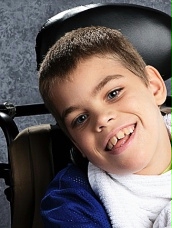When I started my teaching degree program I started thinking I was going into elementary education. I took all the classes for the first two years at a local community college. In those two years, I had a class or two that talked about students with special needs, but that was not the entire content of the class.
Before I started my last two years at a University, I changed my mind and decided I wanted to teach kids who learned differently. I had worked as a teacher’s aide for a couple of years and had fallen in love with my different learners. Since the first two years were general studies and teaching was in my future, I had taken enough of the “right” courses to continue into special education without being behind or having to take more classes.
For the next two and a half years I took classes focused on special education. An elementary education degree required 120 credit hours, while a special education degree required between 126-130 credit hours depending on which areas I wished to be certified to teach. I finished my degree and earned both my special education and elementary education degrees. I came out of University being able to teach any student, with any special need, at any grade level, and any elementary student through grade 3.
Throughout my career as a teacher in special education I often found myself frustrated with my general education colleagues. I expected them to be open minded toward all students in their classrooms. I expected that when they went to school to get their teaching degrees they were like me and wanted to teach...anyone. I expected that no matter who entered their door they would be able and willing to adapt and would want to work with all their students. I even had a general education teacher tell me once, “If I had wanted to teach those kids, I would have gone to school for that.” I was appalled that someone who was in the field of education would think that way!
What never crossed my mind the entire time I taught was how little training general education teachers actually receive when it comes to working with kids with special needs. What never crossed my mind was the fear of failure many of my colleagues felt when it came to working with kids with special needs. What never crossed my mind was how many of my colleagues honestly believed (and many told me) they could not do what I did. When I had teachers tell me that early on in my career I took it as a compliment and would reply, "Yes, you could." In my head I was thinking I could do their job so of course they would be able to do mine. However, as the years went on, I realized they really were not complimenting me as much as stating a fact about themselves. They truly did not have the training I did.
I was taught to teach students, they were taught to teach subjects. I know that sounds like a slam, but it isn’t. Since I earned degrees in both special and elementary education, I was taught to teach subjects as well as see the exceptionalities and ways to adapt the curriculum and materials. They were taught how to teach reading, math, handwriting, science, etc. To my general education colleagues, I’m sorry. Please forgive me for expecting you to be something you could not.
To all general education teachers, I’m sorry for the insufficient training you receive to work with kids with special needs. I realized a little over a year ago that out of your 120 credit hours for your degree only 6 to 12 of them are focused on or even touch the topic of kids with exceptionalities. Yet, our society (and myself for many years) expects you to welcome, with arms wide open, every student no matter their ability level, into your classroom. Even the college courses you do take only cover the basics of IDEA, the characteristics of the 14 (or 13 depending on when you graduated) categories of special education, and a few ways to differentiate your lessons to accommodate the students in your classroom. You aren’t given training on behavior management or modification, or strategies to reach students who learn differently than you teach. You aren’t taught that when a child needs accommodations or modifications they are still an equal member of your class and equally as intelligent if not more so than other students, that all children are children first and whatever differences they have are secondary. You didn’t have to experience any students with special needs in your observations or student teaching times or if you did it was only a few hours.
Now that I have an understanding of how little you are prepared to fulfill the IDEA law, I want to help you. I want to walk beside you and help you develop ideas of ways to accommodate, modify, include, and reach EVERY student that walks through your door. If you want me to help you or help your school reach out to me. I promise not to tell your boss you are improving yourself for the betterment of ALL your students. Together, we can make the world better for all, one IEP at a time.













Comentários